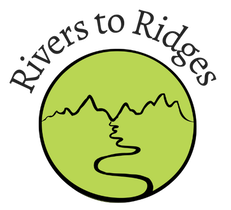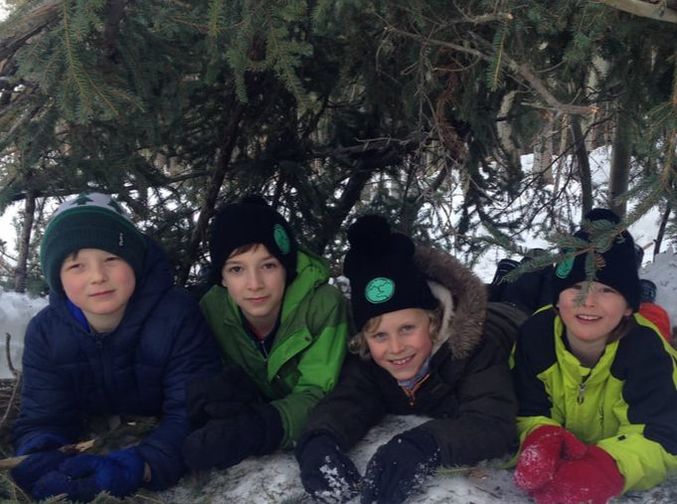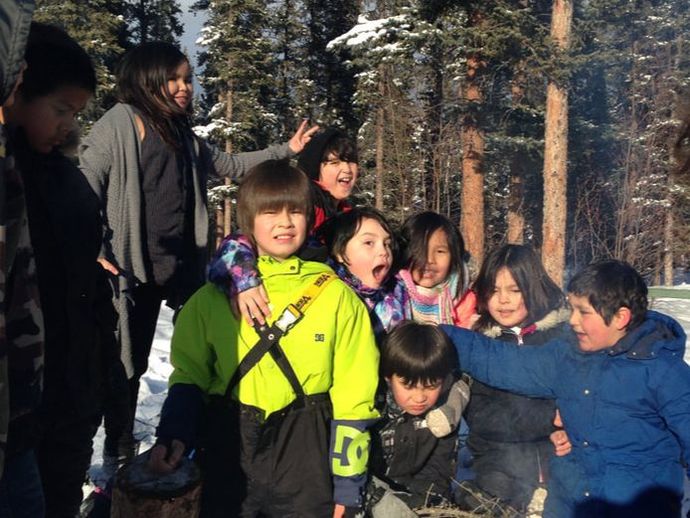Our Recommended Resource List
Below is a list of some of our most favourite learning resources for educators, parents and kids.
Downloadable Content
Pedagogical & Foundational Resources
Tracking and Wildlife
Birds and Bird Language
Plants and Herbal Healing
Wellness, Emotions and Health
Children's Books
Song Resources
Research & Ongoing Learning
- Wintertime Gratitude Scavenger Hunt 1
- Wintertime Gratitude Scavenger Hunt 2
- Year Round Outdoor Play Wheel
Pedagogical & Foundational Resources
- Truth and Reconciliation Commission of Canada: Calls to Action
- Coyote Guide to Connecting with Nature by Jon Young, Ellen Haas and Evan McGown (One of our most-used resources!)
- Forest & Nature School Canada: A Head, Heart, Hands Approach to Outdoor Learning
- Get Outdoors: An Educator's Guide to Outdoor Classrooms in Parks, Schoolyards and Other Special Places
- Rediscovery: Ancient Pathways, New Directions by Thom Henley (Indigenous cultural & land connection that started on Haida Gwaii, BC)
- Last Child in the Woods, Vitamin N and The Nature Principle by Richard Louv
- Part of the Land, Part of the Water: A History of Yukon Indians by McClellan and Bircke (Covers range of topics from subsistence technology to spiritual traditions)
- Project WET and Project WILD by Council for Environmental Education
- Most importantly: Reach out to local Elders and knowledge-holders in your own community!
Tracking and Wildlife
- Tom Brown's Field Guide to Nature Observation and Tracking by Tom Brown Jr.
- Animal Tracking Basics by Tiffany Morgan and Jon Young
Birds and Bird Language
- What the Robin Knows by Jon Young (An introduction to bird language)
- Bird Feathers: A Guide to North American Species by David Scott and Casey McFarland (The best feather field guide in print!)
Plants and Herbal Healing
- Learning Herbs (Check out WildCraft - A Cooperative Herbal Board Game)
- The Earth's Blanket by Nancy Turner
- Aboriginal Plant Use in Canada's Northwest Boreal Forest by Robin J. Marles
- Boreal Herbal by Beverly Gray (Lots of simple DIY herbal receipes and harvesting tips)
- Flora of the Yukon by William Cody (A complete botanical listing of every plant in the Yukon)
Wellness, Emotions and Health
- Non-Violent Communication by Marshall Rosenberg
- Every Child Practicing Empathy, Ashoka Foundation
Children's Books
- Another Way to Listen and Everybody Needs a Rock by Byrd Baylor
- My Side of the Mountain and Julie of the Wolves by Jean Craighhead George (young adult)
- A Nest is Noisy, A Seed is Sleepy & other books by Dianna Hutts Aston
- Bear and Wolf by Daniel Salmieri
Song Resources
- Hello Dear Earth - Our group singing our Opening Circle song at The Nest Forest School
- Singing Alive - Teaching & Sharing Gatherings of Sacred Song Circles
- Fresh Air Learning Song Book - Kids always ask for Wild Ones & Wood, Stone, Feather & Bone!
- Earth Songs by Beautiful Chorus - The Freedom Song is best sung with forest percussion accompaniment.
- Remy Rodden Music and Song - What's that? Habitat! and Three Simple Rules are favourites in our programs!
- Laurence Cole - Singing together to nourish the soul and re-enchant the world. We love I am Seeing You!
- Trees - Molly Ledford & Billy Kelly have written an album's worth of songs about trees. This is that album.
Research & Ongoing Learning
- Land-based Practice for Indigenous Health and Wellness in Yukon, Nunavut, and the Northwest Territories - Jennifer Redvers (2016)
- Child & Nature Network - leading a global movement to increase equitable access to nature so that children– and natural places–can thrive
- Reconciliation Through Indigenous Education: Advancing reconciliation in classrooms, organizations, and communities through the teaching and learning of Indigenous ways of knowing - UBC EdX Online Course
- We Rise Together: Achieving Pathway to Canada Target 1 through the creation of Indigenous Protected and Conserved Areas in the spirit and practice of reconciliation - The Indigenous Circle of Experts
|
Shelter and Awareness
Training your eyes and ears to notices animal signs, songs and shelters is something worth developing, because it gives us insight into how animals live outdoors all year long. Take a look on the ground, in the trees and all around for signs that animals are living in the urban and wild areas around your home. If it's safe for you and not a disturbance to the animals, try and see how the animals built their shelters. Ask questions! Why did they choose that spot? What materials did they use, and where do you think they found them? Does it look like a shelter that will last the whole winter? What are other questions you could ask the animal about its shelter? Out and About Richard Louv has put together a great list called MUD IS GOOD! Ten Easy Ways to Connect Your Family to the Joy of Nature. Follow the link to find 10 things you can do as a family to get you out into nature this Spring. From "Be a cloudspotter or build a backyard weather station" to "invite native flora and fauna into your life," these are simple ways to spend more time outside with your youngsters. |
The Importance of Play
Oftentimes, kids will have better ideas than adults. They also have energy that needs to be expended in creative ways. Sometimes there is just too much adult-directed time, and not enough kid-directed time. In Peter Gray's essay The Play Deficit, he says: "In school, and in other settings where adults are in charge, they make decisions for children and solve children’s problems. In play, children make their own decisions and solve their own problems. In adult-directed settings, children are weak and vulnerable. In play, they are strong and powerful. The play world is the child’s practice world for being an adult. We think of play as childish, but to the child, play is the experience of being like an adult: being self-controlled and responsible. To the degree that we take away play, we deprive children of the ability to practise adulthood, and we create people who will go through life with a sense of dependence and victimisation, a sense that there is some authority out there who is supposed to tell them what to do and solve their problems. That is not a healthy way to live." |




